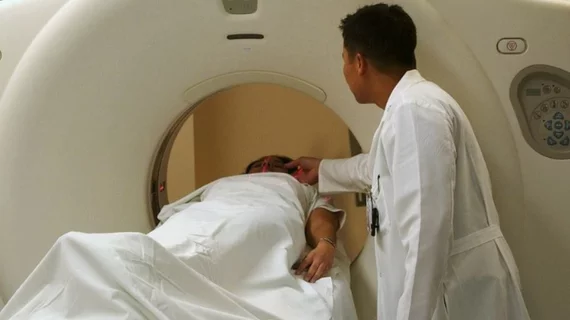NYC radiologists find COVID-19 incidentally on neck, abdominal CT
COVID-19 can show up incidentally when a patient’s lungs are partially readable on CT scans of the abdomen or neck. And the findings can help identify patients who should be strictly quarantined.
That’s according to radiology researchers at Brooklyn’s Maimonides Medical Center, one of the hottest COVID hotspots in New York City. The team has published a set of case studies supporting their conclusion in Emergency Radiology.
David Vu, MD, and colleagues describe the hospital’s experience with three patients who presented in the ED with none of the most common clinical symptoms associated with the novel coronavirus—fever, cough and shortness of breath.
In each of these cases—two of which were recorded before March 9, when the case count in NYC was still below 20—a portion of the lungs was incidentally scanned with CT.
The first patient was a 69-year-old man who complained of general body aches. The second was a 67-year-old male who went to the ED for unusual urinary frequency and abdominal pain radiating to the pelvis. The third was a 30-year-old man transferred to Maimonides for suspected stroke.
In each case, the CT findings prompted the interpreting radiologist to refer the patients for COVID-19 testing.
The findings of concern included “pulmonary parenchymal ground-glass or nodular opacities in a predominantly peripheral distribution on abdominal or neck CT when a portion of the lungs is imaged,” Vu and colleagues report.
All three patients ended up testing positive for COVID-19.
In their discussion, Vu et al. comment that patients not initially suspected of COVID-19 but showing these findings incidentally on CT “can be placed into isolation at the hospital earlier and be instructed to stay quarantined until the test results come back, limiting exposure to others. Precautions can be discontinued when the patient has two consecutive negative tests from the nasopharynx and oropharynx more than 24 hours apart.”
The journal has posted the study in full for free.

